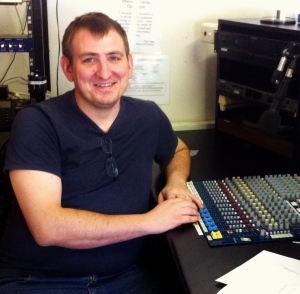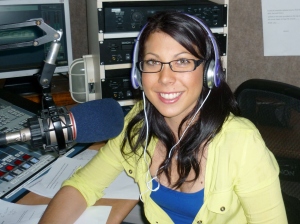A BRIGHT FUTURE FOR COMMUNITY RADIO?
Every year community radio stations in Australia are threatened with government budget cuts, and the uprising of commercial radio stations increasing their share of the broadcast ratings on the airwaves.
Despite these factors, community radio is proving to be resilient against a range of environmental and political factors that are impacting on its future.
According to the 2014 Community Radio National Listener Survey, over 29% of radio listeners tune in to community radio each week throughout the nation.
So almost 5.5 million listeners must be a great thing, right?
Emma McCluney, Ambush the Airwaves online editor, set out on a mission to investigate whether the future of community radio in Australia is indeed safe…for now at least.
Russell Biddle, president of radio station 100.3 Bay FM in Thornlands, Queensland, believes community radio is a fundamental key to social engagement and entertainment, and its survival in society today is paramount.
“The community station fills that gap in between in relation to all the local information, the local news, and because it’s amateur it gives a lot of people the opportunity to get involved, and I think people enjoy that,” he said.
“You don’t get the same top 40 songs all the time [or] the same talk back callers all the time.
“There’s actually quite a variety and I think that’s very attractive.”
With new community groups forming and competing with local stations for government-funded incentives and sponsorship, Mr Biddle is concerned for the future of community radio.
“Over the last few years [funding] has been cut back quite substantially,” he said.
“It’s much more competitive to get the funding to do what you want to do, and that’s why we rely on our sponsors.
“You’re competing for advertising dollars basically to survive and to do that you’ve got to provide variety, the quality of the programs that you’re putting on need to be more polished than what they’ve been in the past…and that you’re giving the community what they want so that they then support the sponsors of the station.”
Danny Chifley, the longest serving staff member at the Community Broadcasting Association of Australia (CBAA) office in Sydney, agrees the funding cuts are a problem, but the increase in listeners has had a noticeable positive impact on the community radio sector.
“We have very dedicated listeners tuning into [community radio] for approximately 14.5 hours each week,” he said.
“We are doing everything we can so the sector stays strong…[and] we are trying to conduct research with our members, and find out what our community broadcasters need.
“We’ve had the threat of budget cuts in recent years but the sector has always run on very limited resources…[however] if the government was to pull all funding, I’m sure the sector would still survive.
“The local community through their membership and sponsorship provide most of the money for the sector.”
Until next year’s budget, we will just have to wait and see whether the future of community radio really is in safe hands, but for now we can rest assured that the power of social awareness is growing by the year, and sponsorship is keeping the industry afloat for the time being.
To find out more please visit the CBAA website: http://cbaa.org.au. Alternatively you can look at the 2014 National Listener Survey here: http://cbaa.org.au/sites/default/files/Fact%20Sheet%20-%20QLD%20-%202014.pdf
Emma McCluney
Read more about the author here:




